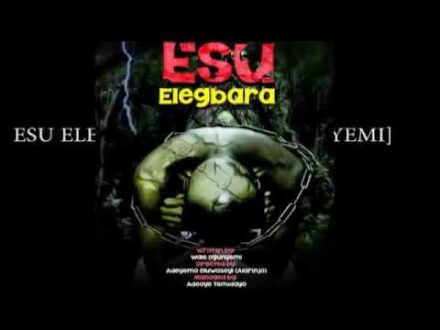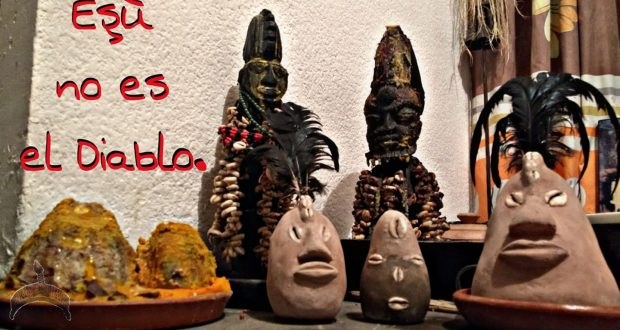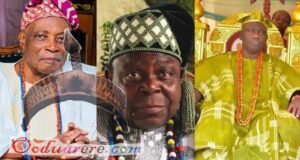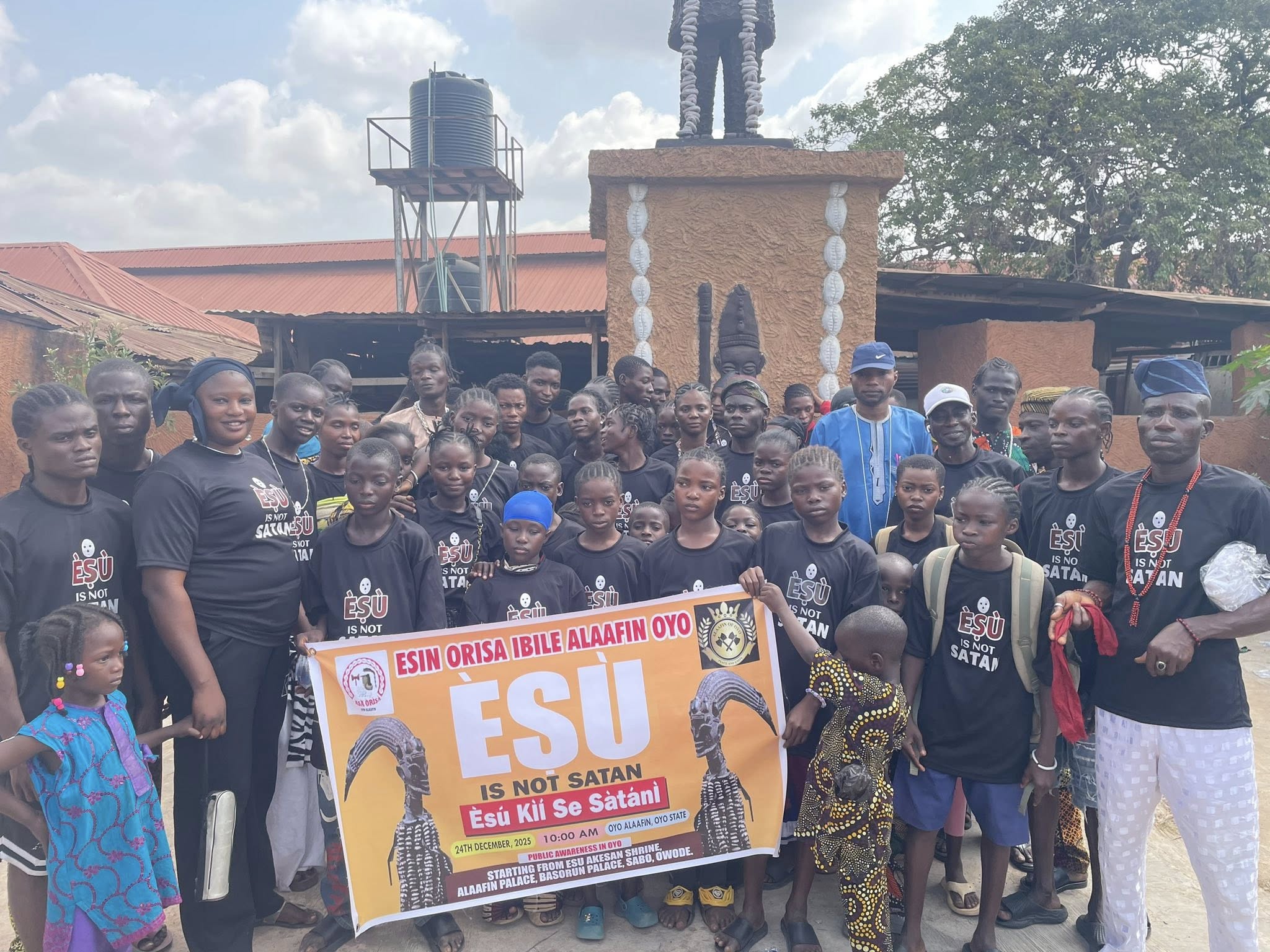Elegua or Ellegua comes from the word Elegbara which means spirit of the trickster. When the Atlantic slave trade took place, alot of the Oodua (Yoruba) words got corrupted mis-pronounced and mis-spelled because of the Spanish dialect.
Gbara – strength
Elegba – spirit of good character
Elegbara-spirit of the trickster
All the above name mention are praise name of the Irunmole/Orisa Esu
All one and the same entity.
Esu Elegbara a praise name of Esu. Elegbara ( the powerful one) a praise name. One of many for Esu. Like Esu Ota Orisa, Omo kekere, Elegbara.
In Cuba you can see how they went from Elegbara to Ellegua, Elegua, Elegba.
But Elegbara by itself is not the Irunmole, Esu is the Irunmole.
Their is no such Orisa or Irunmole as Elegua. Elegua was conceived in Cuba from the result of Africans from Oodualand (Yorubaland) and other places.
Now there is an Irunmole called Esu. Cuba has helped to disseminate information about Irunmole/Orisa culture but we need to be clear. No Irunmole/Orisa came from Ikole Orun to ikole Aye Matanza or Habana. There never existed in Ikole Orun an Irunmole called or spelled Ellegua, Elegua. That is a hybrid creation concocted in Cuba.

Who is Elegba, Elegbara or Elegua/Eleggua/Ellegua ?
He is called Èsú (eshu), Èlegba and Èlegbara among the Oodua (Yoruba) people. In Brazil for the practitioners of Candomble, he is Exu. The Lucumi of the New World know him as Eshu Eleggua. These references are sacred praise names or “oriki” for Eshu-Elegbara. Oriki is used to describe the attributes or to recount the adjectives that describe an Orisa.
When we examine the name Elegbara, we find it is comprised of two words. The word “ele” means messenger. “Agbara” means power or authority. Accordingly this oriki defines the deity Eshu role as messenger and holder of Olodumare’s àsé (power and authority). Symbols such as an Eshu figure holding a calabash, personify this attribute. Omo orisha throughout the Diaspora recognize Eshu Elegbara as a deity that holds the power to make things happen* – good or bad. For this reason he is propitiated to assure that all communication or action will not encounter negative influence or obstruction.
 Ọmọ Oòduà Naija Gist | News From Nigeria | Entertainment gist Nigeria|Networking|News.. Visit for Nigeria breaking news , Nigerian Movies , Naija music , Jobs In Nigeria , Naija News , Nollywood, Gist and more
Ọmọ Oòduà Naija Gist | News From Nigeria | Entertainment gist Nigeria|Networking|News.. Visit for Nigeria breaking news , Nigerian Movies , Naija music , Jobs In Nigeria , Naija News , Nollywood, Gist and more









